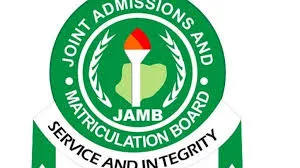
JAMB Refutes Claims of N9bn Expenditure on Meals: Full Story Inside
The Joint Admissions and Matriculation Board (JAMB) has refuted claims that it was queried by the National Assembly for allegedly spending ₦9 billion on meals, refreshments, and security.
In a statement released by its spokesperson, Dr. Fabian Benjamin, JAMB clarified that during its appearance before the Joint Committee of both the Senate and the House of Representatives on Finance on January 13, 2025, it presented only its 2025 budget proposal, not the 2024 expenditure. Therefore, assertions regarding substantial spending in 2024 on items such as meals or fumigation are unfounded.
The Board explained that within its 2025 budget proposal, it has allocated ₦1.1 billion to provide one meal per day for its 2,300 staff members nationwide, including cleaners and security personnel. This initiative aims to enhance staff efficiency and minimize their exposure to external environments during working hours. The cost per meal has been adjusted from ₦1,200 to ₦2,200 due to rising food prices.
Additionally, JAMB has earmarked ₦850 million for the emolument of outsourced cleaners and security personnel, as well as for cleaning materials and fumigation services. This allocation covers 386 security personnel and 194 cleaners across its offices nationwide. Notably, only ₦2 million is designated specifically for fumigation services for the year.
Regarding the ₦6.4 billion proposed for “Local Travel and Transport (Training),” JAMB clarified that this amount is intended for the deployment of over 10,500 officials for the conduct of the 2025 Unified Tertiary Matriculation Examination (UTME) and mock examinations. The Board emphasized that this categorization aligns with the mandated template for Government Owned Enterprises (GOEs).
JAMB underscored that all its capital, overhead, and operational costs are financed from its Internally Generated Revenue (IGR), with the government covering only the salaries of pensionable staff. The Board expressed concern over the dissemination of misinformation and urged the public to refer to official communications for accurate information.